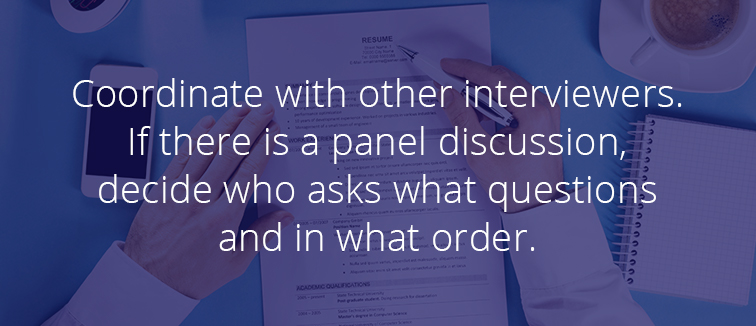When you are in a start-up or small and medium enterprise (SME), having trouble filling open job roles may cause you to miss certain key goals you have set, affecting profit margins.
According to Sam Randall, Associate Partner, Page Executive, some of the most common factors leading to companies missing out on top talent include a disorganised recruitment process, lengthy interview procedures and sloppy communication about the interview process — for example, not stating how long it process is, and not letting the potential job candidate know that he or she did not get the job.
In a tight job market where there is an increasing shortage of skilled talent, it is important that companies don’t lose out when attracting and hiring the right candidates. “Streamlining the hiring process can make all the difference here,” says Mr Randall. He shares five hiring tips for small businesses to bear in mind to ensure an effective hiring strategy:

1. Plan Your Hiring Process
Have a clearly defined process before the interview. To aid in this, consider the following questions:
- How many interviews do you need in order to fill the role? Do remember to inform your interviewees about this and don’t leave them hanging after interviews. A 2018 CareerBuilder and SilkRoad survey found that 82 percent of job candidates expect a clear timeline of the hiring process.
- Who should be involved in the interview and what is their role? For instance, is their opinion needed for the hire?
- What is the interview structure? For example, will the candidate have to sit for any tests or bring any work samples?
Like what you’re reading? Click here to receive more employer-centric content in your mailbox!

2. Know Who You Want
Understand the type of person you are looking for, the qualities you don’t want, and the skill sets needed such as critical thinking, self-motivation, good communication skills and teamwork.
“Creating a priority list of qualities and skills your job candidates must possess early on in your hiring process will help you hone in on the right candidates a lot faster,” says Mr Randall.
3. Streamline the Hiring Process
Is your recruitment process a lengthy affair? According to the same CareerBuilder and SilkRoad survey, 55 percent of job candidates will give up and move on if they have not heard from a prospective employer within two weeks of applying for a job. Mr Randall notes that in today’s competitive job market, the chances of strong talent being interviewed and even headhunted by other companies is extremely high.
Dragging out the interview process and making job candidates wait long periods between interviews may cause you to lose good potential employees to rival companies. To address this, tighten your interview process. For instance, if you have a number of stakeholders who need to evaluate the candidate, consider a panel interview instead of multiple one-on-one interviews. Not only can this save time in the overall interview process, it can also reduce redundancy in the questions being asked. In addition, panel interviews can help give the candidate a deeper insight into your company culture.
Read also: Looking to Hire the Right Job Candidates? Here’s How

4. Keep It Short, Sweet and Mobile-friendly
Is your application process time-consuming and arduous? According to the CareerBuilder and SilkRoad survey, job candidates expect a fast and easy application experience, with 20 percent spending less than 10 minutes on a job application. Furthermore, 68 percent of employees believe that their experience as a candidate reflects how the company treats its people.
As Mr Randall points out, it’s important that jobseekers don’t get a bad impression of the company during the hiring process as many will share their experience with their friends and maybe even on social media.
Ensuring your job application form is mobile-friendly can also help you score points. Today’s jobseekers are usually only willing to consume two to three pages on their mobile devices before dropping off.

5. Engage with the Candidate
One complaint voiced by many jobseekers is that they don’t hear back after an interview or promised follow-ups never occur. Mr Randall notes that if the candidate is a good fit, be clear about the next steps, rather than keeping them on hold while interviewing more candidates.
And if you have decided not to hire the candidate, do let them know. Remember, the candidate experience speaks volumes about the employee experience.
Read Also: Top Job Interview Tips for Singapore Employers



















